Living in the Bay Area had the effect for a while of hardening me and my usual soft heart against the homeless. According to the San Francisco Homeless Project, SF has the second highest rate of homelessness in the United States. And for the Bay Area, it has double the rate of Oakland, and three times that of San Jose.

During the 11+ years I worked in Berkeley, there were times I swore Berkeley had the highest rate of homelessness in the US. Granted, if I were homeless I’d rather be in Berkeley than a lot of other places, but I got to where I hated leaving my office to walk down Durant Avenue toward Telegraph Avenue.
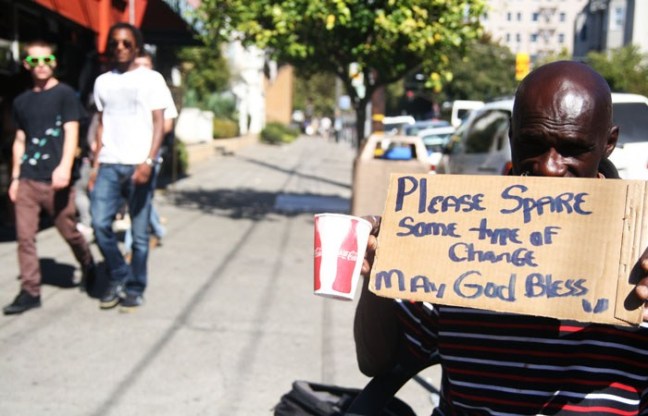
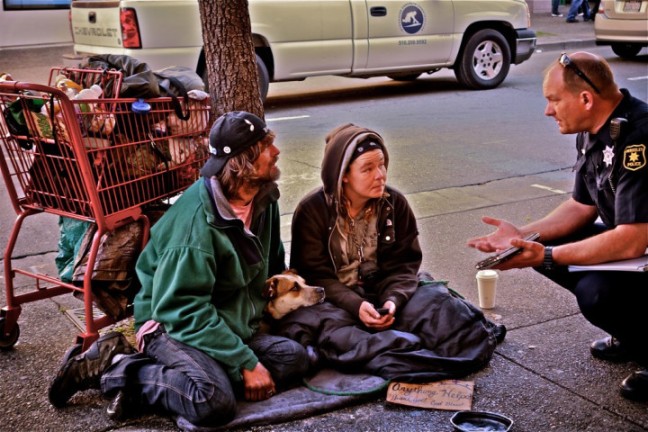
Not that I had to leave work to be confronted with my discomfort. The old location of the University of California, Berkeley Art Museum and Pacific Film Archive (BAM/PFA) was a natural place for people living on the streets to go in to use the restroom facilities. Anyone who is out and about and has to use a bathroom faces a hard time finding places without the “restrooms are for customers only sign”.
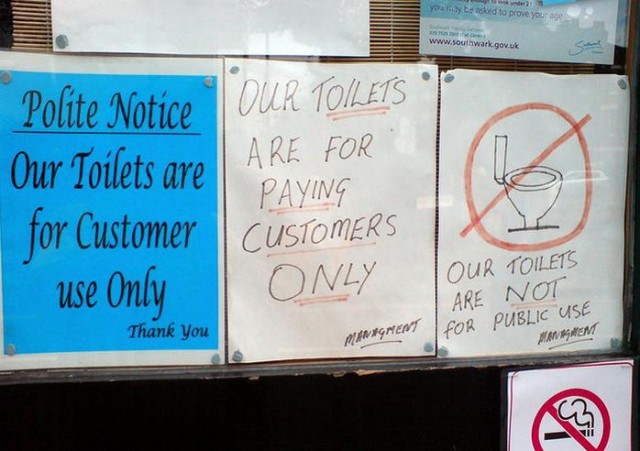
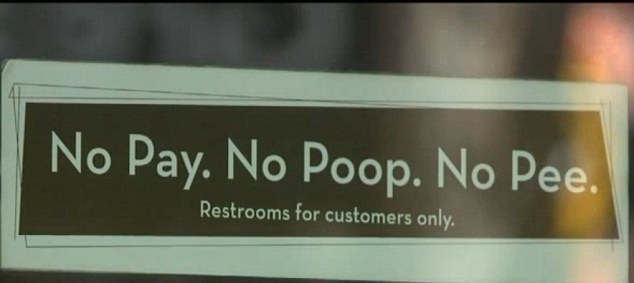
I much prefer this sign:
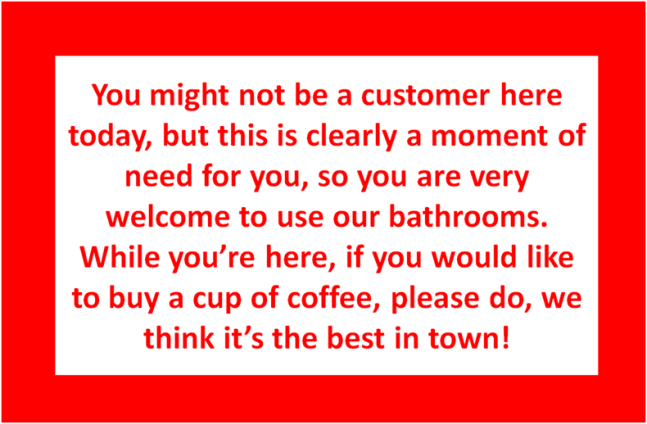
My initial annoyance at having to share the facilities with the woman who came in regularly and cried while taking a sink bath became empathy and a realization of “There but for the grace of God go I” (or the equalivalent since I’m not into the God thing).
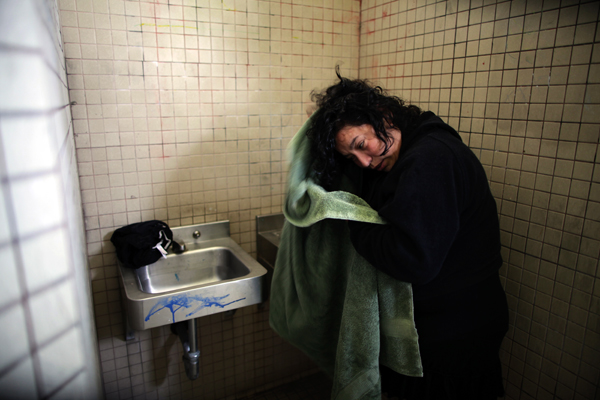
My attitude first underwent a shift when I was working on my Masters in Library and Information Science a few years ago. For a class on Libraries and Society, I decided to write a paper about the use of public library facilities by the homeless. The research was so difficult to read; such heartbreaking stories and real despair. Libraries are meant for everyone, I do believe, but as a wanna-be librarian I was worried about having to be a social worker on top of everything else. But just as the museum restroom off of the Durant Avenue entrance to BAMPFA made sense when I thought about it, so did libraries. They are quiet, warm in winter, cool in summer, relatively safe places to get off of the streets.


Most of the people I know say they never give money to panhandlers and the homeless. If I admitted that I did give money now and then, I felt kind of stupid. I used to believe that if someone couldn’t take care of themself, they had no business having a companion animal. But companion animals are one of the most important joys of life to me, and I’ve changed my mind. This was brought home fully to me after hearing Karen Hamza of Angel Hanz for the Homeless speak on her own experience of being homeless and the services she now provides for the homeless to be able to keep their pets with them. I’ve been through some tough times emotionally in my life, and having the cats and dogs to comfort me and to take care of kept me going. I get it now.
At about the same time, my inspring and beautiful friend Molly posted on Facebook about how the homeless aren’t treated like humans and her experiences talking to people on the street, asking their names, and doing what she could. She and I went to lunch together one day not long after, and she really brought it home for me. We were walking back to our cars with our leftover boxes after lunch, when we started to pass two older guys who appeared to be homeless, or at least really down on their luck. I was going to keep going, but Molly stopped. I reluctantly stopped too, and then as I listened to her talk with them and ask their stories, and watched her give them her lunch (which was going to be her dinner), I couldn’t just stand there. I handed over my box, and was so touched to get a hug in return. Hugs are good.
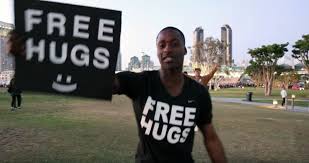
I learned a lot from this encounter about myself and about compassion. When I was recently working at a mobile adoption event for Tony La Russa’s Animal Rescue Foundation outside of the Pet Food Express in Lafayette, I had the chance to practice my empathy and compassion.
Lafayette is not a poor community, and one does not expect to encounter the homeless there. Back in 2012, the median household income in Lafayette was $150,000, more than double the statewide average and nearly triple the national average. The real estate overview I looked at lists the median home price in Lafayette at $1,320,000 and the median rent per month as $5,000. That’s a lot of money. A lot. It’s like Monopoly money to me when talking about these unimaginable sums.
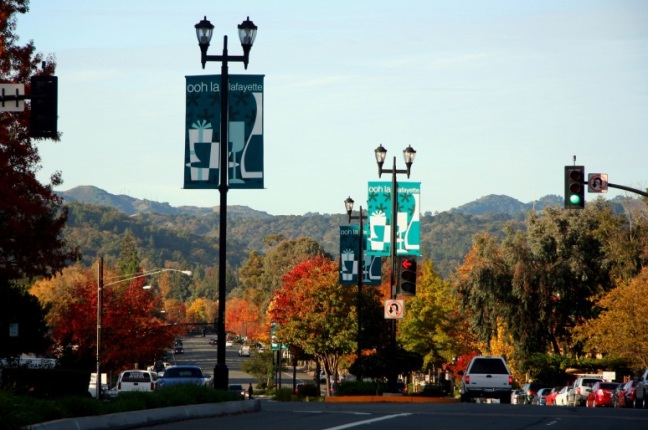

When the 40ish-looking man came over with his dog, I didn’t even stop to think about him being homeless. He was very proud of his dog, a mixed breed with an adorable underbite, appropriately named Smiley. He mentioned he got the dog through Pets for Vets about 5 years ago, and how important the dog has become in his life.

He then talked about his traumatic brain injury and cognitive difficulties and how much Smiley helps him with his post-traumatic stress disorder. By that time, it was clear to me that he was lonely, a bit confused, and in need. I channeled Molly and opened my ears and my heart. He finally said he was”kind of homeless” and quietly asked me for $3 for a coffee at the cafe across the street. I admit to very brief inner struggle and thought of fibbing and saying I didn’t have any cash. But my better nature won the struggle. I gave him a $20. Not the Monopoly kind, a real one. That’s not a small amount of money for me. Animal shelter and animal rescue jobs don’t pay a lot of money. But I can give up a few visits to Peet’s coffee and make up the $20. And I got my hug.
Then I heard from the people I know that I shouldn’t have given him money. You know what? It was my money and my choice. He was a nice guy, taking good care of Smiley, not aggressive, wearing clean clothes, and didn’t smell of alcohol. He is a man who has fallen through the cracks of veterans’ services after suffering serious injuries in serving his country.
I didn’t take his picture; I have more respect than that. Most of these images are from Google Images searches, not my phone.
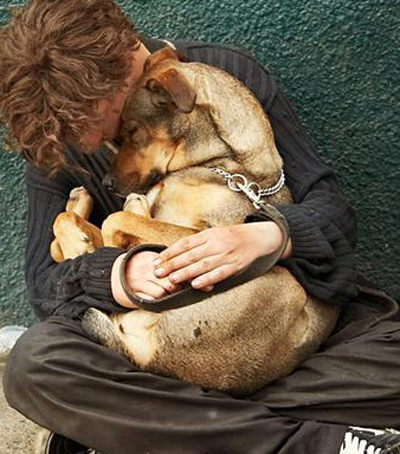
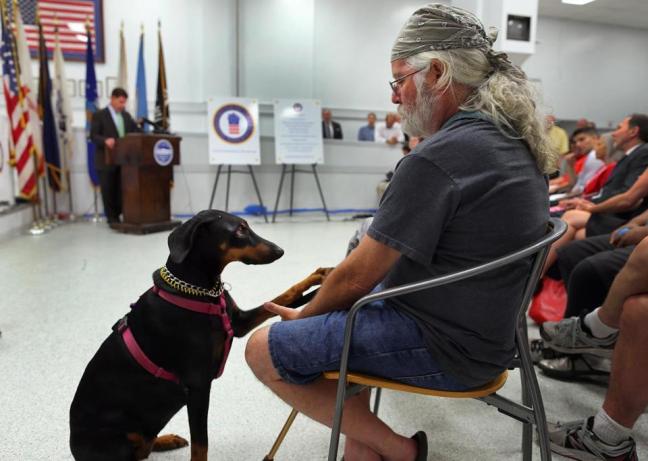
My naysayers make me think of the lines spoken by Ebenezer Scrooge in Charles Dickens’ A Christmas Carol:
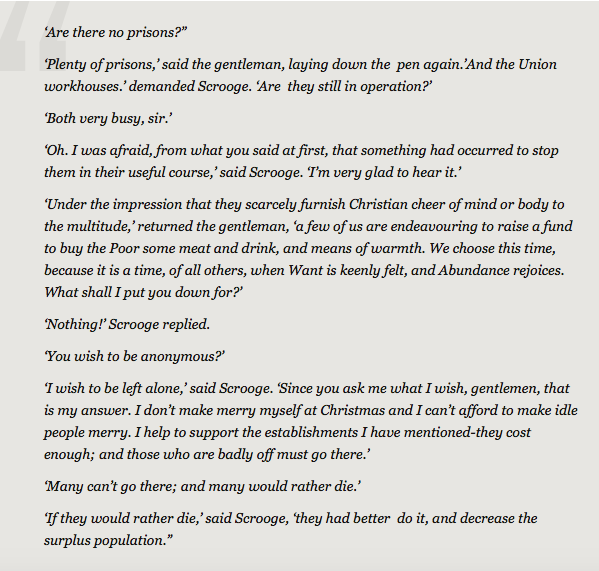
I am not trying to make anyone feel bad. I am not fishing for compliments or validation. I am asking you to think twice next time you turn away from someone on the street. And do not take the good things in your life for granted. We are taught the Golden Rule as children. Let’s follow it as adults.
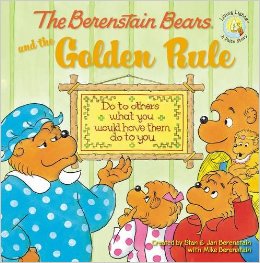
Peace, love, and hugs.
Recommended reading: 3 Ways to Respond Responsibly and Compassionately to Panhandlers




